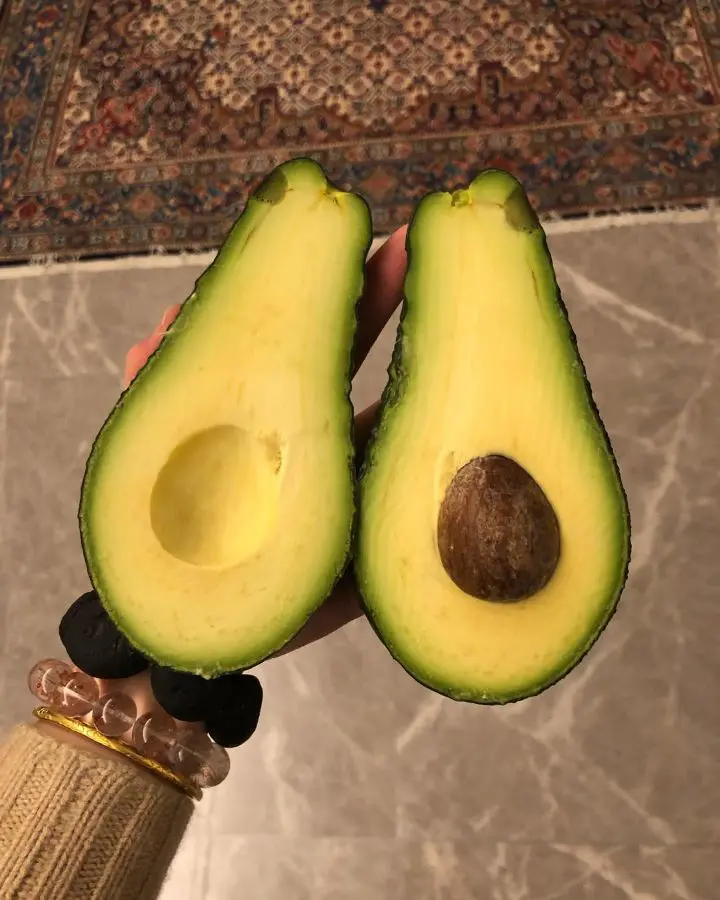Is Oatmeal Good For Weight Loss? Facts and Myths
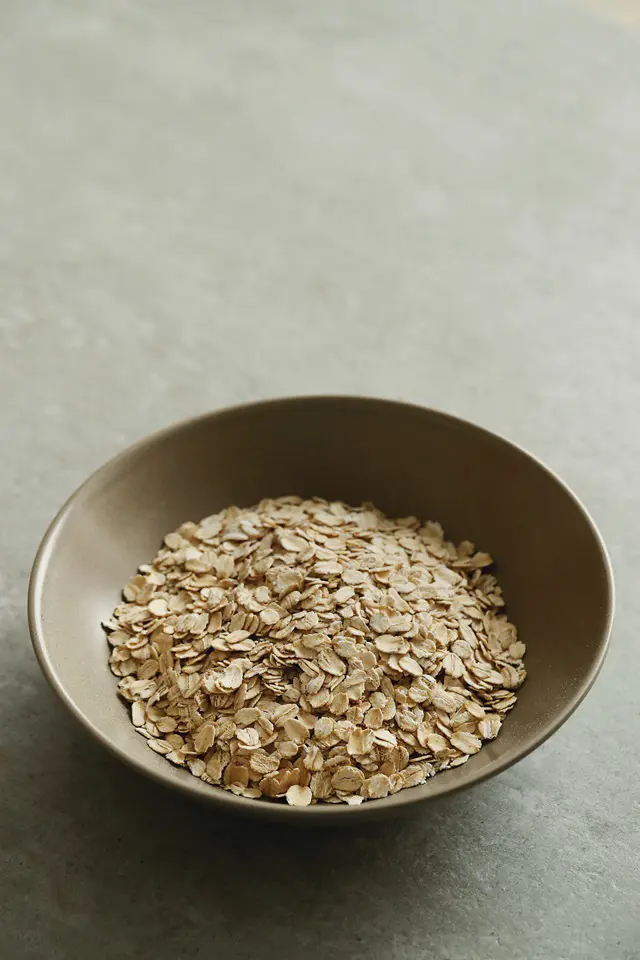
This post may contain affiliate links. If you make a purchase through links on our site, we may earn a commission.
Oatmeal has been a reputed healthy breakfast food for ages. It is derived from oats, a whole grain known for its compact nutrient profile and wide range of health benefits.
Oatmeal, mostly rich in fiber, is also popular in weight loss diets. If you want to know if oatmeal truly helps or not, we will help you separate facts from diet myths as we will look at oatmeal's role in weight loss as well as common misconceptions surrounding its consumption.
Does Eating Oatmeal Help With Weight Loss?
Indeed, oatmeal may be a really effective weight loss companion. Its regular consumption has been linked to long-term weight loss by boosting gut health, controlling blood sugar levels, and encouraging satiety.
In many researches, individuals who were overweight and had oatmeal daily experienced a substantial decrease in both body weight and waist circumference. On average, individuals incorporating oatmeal regularly have shown a gradual weight loss of around 1 to 2 pounds per week.
After consuming oatmeal regularly for 12 weeks, people were observed to lose between 6 to 8 kg depending on their overall diet, lifestyle, and oatmeal portion sizes. The BMI also decreased by approximately 2.5 to 3 points, adding to the benefits of this fiber-rich superfood in a weight loss journey.
Facts Of Oatmeal For Weight Loss
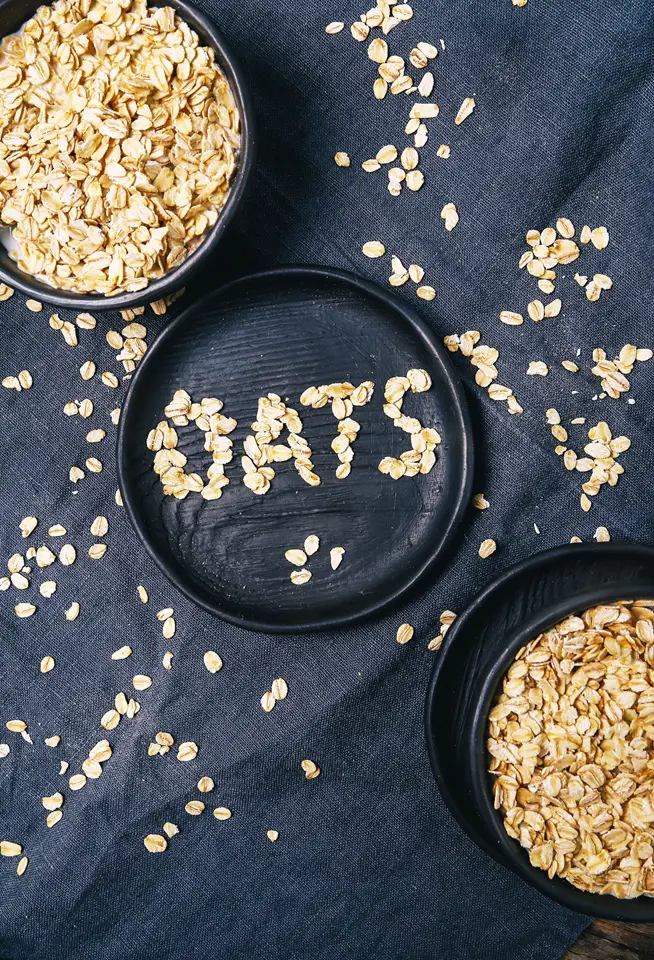
Some of the ways oats are known to be beneficial in weight loss are as follows:
Fiber And Satiety
The oatmeal is comprised of fibers mainly beta-glucan that form a gel-like structure in the alimentary tract and delay the process of digestion. This process maintains a stable energy level by the gradual release of glucose into the bloodstream and reduces insulin spikes.
This generates the feeling of fullness and restricts you from unhealthy snacking and overeating, further adding to your weight loss journey.
Control Of Appetite Hormones
The effect of fiber excels beyond fulfilling fullness. Studies have shown that it can also impact hunger hormones and satiety hormones.
Consuming oatmeal can potentially decrease hunger levels throughout the day as it helps in the stabilization of hormones. This control can be a key aspect in preventing overeating which is a key factor in weight management.
Calorie Control
Oatmeal usually contains low-calorie density. A bowl of oatmeal provides fewer calories per gram than higher-calorie foods like baked goods, muffins, or sugary cereals.
This makes it quite easier to eat substantial amounts without consuming excessive calories. You may be consuming a larger portion but eventually, the overall calorie intake remains minimal which aids in effective weight management.
Blood Sugar Stability

Unlike refined grains, oatmeal has a low glycemic index. This means they do not cause rapid blood sugar spikes followed by crashes.
This stableness in blood sugar levels which is generated by eating oatmeal has an effective approach to weight management as the urge to unhealthy snacking is restricted.
Improved Metabolism
Oatmeal is a fiber-rich food that requires more energy to get digested. This means your body burns more calories while processing this meal which can give a slight boost to metabolism.
Stored fat is broken down more easily and effectively as oatmeal increases fat oxidation which helps in your weight loss process.
Improves Insulin Sensitivity
Consuming oatmeal regularly has been linked with better and enhanced insulin responsiveness, a key factor in preventing and managing weight gain.
Improved insulin sensitivity means your body can manage the bloss sugar more efficiently and effectively, which decreases the chance of fat storage. This can heavily assist your overall weight loss efforts.
Versatile And Customizable
A well-adaptable food, oatmeal can be mixed with various toppings and fruits. This provides an added boost to flavor and nutrients and helps you stick to the healthy routine.
It can also be prepared in advance as overnight oats or as a warm breakfast, which makes it easier to continue healthy eating. This adaptability and versatility of oatmeal gives you the option to incorporate the weight-benefitting meal in your own customized way.
Digestive Health
A prebiotic food, oatmeal promotes the generation of healthy gut bacteria. This can eventually improve digestion and help reduce bloating and various digestive disorders.
The natural fiber content of oatmeal encourages regularity, supporting digestive health and reducing bloating or water retention that might make you feel heavier.
Myths About Oatmeal And Weight Loss
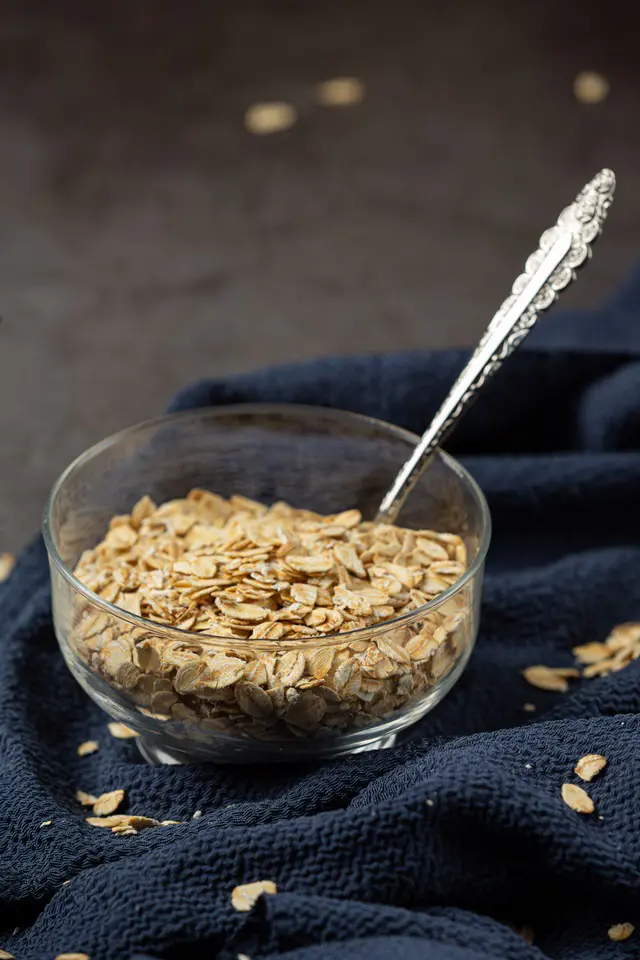
Oatmeal Alone Can Lead To Weight Loss
It is true that oatmeal can support weight loss efforts, but it is not any magic food. Weight loss heavily depends on various factors like a balanced diet, regular exercise, and many more.
Many people have the false mindset that just by incorporating oatmeal into their meals, they can significantly lose their weight which is so not true. It can definitely promote fullness and minimize the overall calorie intake but with that, the other lifestyle factors are essential for sustainable weight loss.
Instant Oatmeal Is As Good As Steel-Cut Oats
Steel-cut or rolled oats are often less processed than instant oats which gives it a higher glycemic index. These instant kinds may catch your eye with flavor content but they possess higher sugar content.
Instead of flavored oats, you can opt for unflavored oats with no sugar and add fruits to spices for added flavor.
A Low-calorie Option That Can Be Eaten In Large Quantity
We have already addressed the low-calorie benefit of oatmeal and how it supports effective weight management. Consuming very large portions or adding high-calorie toppings like sugar, cream or syrups can easily increase the calorie count.
This can make it less weight-loss-friendly. It is recommended to consume in moderate amounts so that your body can get adequate calories with portion control. Also, be aware not to add any high-sugar toppings as it can cut off your weight loss goals.
Consuming Oatmeal Every Day Speeds Up Weight Loss
Many individuals carry this myth that consuming oatmeal every day can rapidly decrease your weight which is so not true. Eating oatmeal every day is not necessary to see weight loss results.
Instead of that a variety in your diet can ensure you get a balanced intake of nutrients which can support effective weight loss efforts. You can incorporate oatmeal which is no issue, but adding other high-fiber foods can promote health and weight loss without potential monotony.
Only Hot Oatmeal Has Health Benefits
Oatmeal health benefits remain unchanged whether eaten hot or cold. Overnight oats, which are soaked oats typically eaten cold are just as nutritious as a hot bowl.
The soaking procedure even makes the oats easier to digest for some people, which means you can enjoy them hot or cold and still gain their weight loss benefits.
Adding Fruit To Oatmeal Can Ruin Its Weight-Loss Benefits
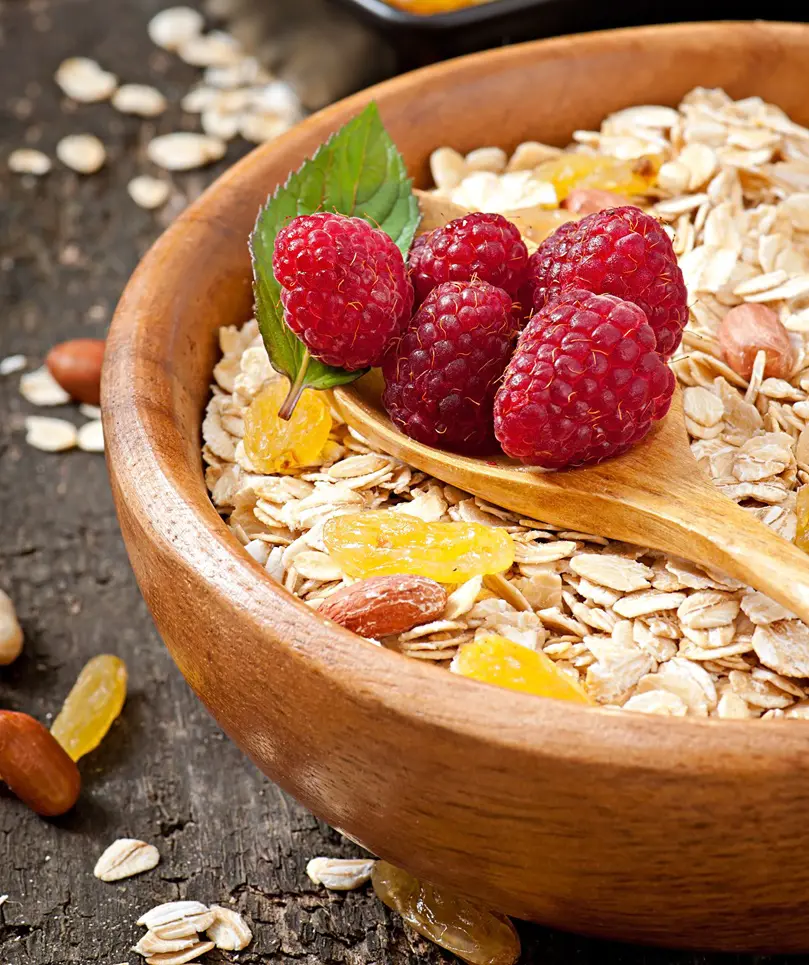
Fruit kinds like bananas, berries, or apples add natural sweetness, fiber, and antioxidants without the need for added sugars. They are mainly low in calories and very rich in nutrients which make them a perfect complement to oatmeal.
The fiber and natural sugars in fruit can actually support stable blood sugar and also add fullness that can promote weight loss.
Oatmeal Leads To Bloating And Should Be Avoided
While consuming oatmeal some individuals can experience initial bloating when adding more fiber to their diets. This is normal and usually temporary as the body adjusts.
If such a case prevails, drinking plenty of water and incorporating oatmeal in moderate amounts can reduce any bloating. In the long run, oatmeal is actually beneficial for gut health.
How Much Oatmeal Is Enough For Shedding Pounds?
For effective weight loss, the ideal portion of oatmeal generally ranges from half to one cup of dry oats per meal. This is also altered by individual calorie needs and satiety levels.
Half a cup of dry oats is around 40 grams which expands roughly to 1 cup when cooked. This portion contains around 5 grams of fiber and 6 grams of protein which is essential for promoting fullness and curbing hunger between meals.
On the other hand, one cup of dry oats is kind of suitable for those with more active lifestyles or higher calorie needs. It consists of nearly 10 grams of fiber and 12 grams of protein, providing lasting energy while keeping cravings at bay. These all benefitting factors make oatmeal a healthy food for your weight loss journey.
Ways To Incorporate Oatmeal

Here's an expanded look at various ways to add oatmeal to your diet:
Classic Oatmeal
Simply cook rolled or steel-cut oats in water or plant-based milk. You can stop mixing when they reach a creamy consistency.
It is one of the traditional ways to enjoy oatmeal and for added flavor, you can even add fruit berries, and nuts. A bit of honey or maple syrup can pair well to provide natural sweetness, savoring your taste buds.
Use In Soups And Stews
Oats can be used to add flavor and thickness to soups and stews. Just a handful of oats mixed in can add fiber and make your dish more filling without a noticeable change in flavor.
This is mainly helpful in vegetable-based soups, where oats can add a light creaminess without the need for cream or other added thickeners.
Overnight Oats
This can be very helpful for those who find it boring or hectic to prepare in the morning time. You can mix oats with milk or yogurt in a jar or container, then add any desired toppings of your choice.
Then place it in the fridge overnight, and by morning, the oats will have absorbed the liquid generating a creamy, ready-to-eat breakfast.
Energy Bites
Energy snacks made with oats are a fantastic choice which do not require baking. They include fiber, healthy fats, and protein so they provide you with sustained energy.
To make these you can simply mix oats with honey, nut butter, and any additional ingredients you desire. Transform them into balls and refrigerate them and they are ready to be served and eaten.
Other Health Benefits Of Oatmeal
Supports Heart Health

Oatmeal consists of soluble fiber which plays a key role in lowering cholesterol levels which directly benefits heart health. It forms a gel-like substance in the gut, which sticks up the bad cholesterol and reduces its absorption in arteries.
This restricts plaque formation in the arteries and help to mitigate strokes and attacks. Magnesium and potassium content in oatmeal also aids in sound heart function by regulating blood pressure.
Boost Immune Function
Numerous vitamins and minerals necessary for immune function are loaded in oatmeal. Zinc, selenium and B vitamins with fiber help in maintaining a robust immune function.
The fiber can improve the body's responsiveness to fight infections and pathogens. Vital antioxidants are present in oatmeal that further support in maintaining sound immune function by protecting immune cells from damage of free radicals.
Persistent inflammation is caused by the degradation of immune cells which can eventually weaken the immune system. Adding oatmeal to your daily diet you are providing your body the reinforcement to immune defense.
Skin Health

Famous for soothing the skin, oat meals are highly used in beauty products. So by also eating oatmeal, we are giving our body the same skin benefits but via the inside out which can help in maintaining a plump and healthy complexion.
Silica is a mineral that can increase skin elasticity and moisture, being abundant in oats. It also has the ability to stimulate collagen production, a protein responsible for promoting tight and elastic skin. Also, high antioxidants and necessary minerals shield skin from harmful UV rays or free radicals damage. These compounds also help to minimize the signs of wrinkles, fine lines, and premature aging.
Better Digestive Health
For those of you who are looking to improve your gut health, oats could be an excellent choice. Oatmeal is fiber-rich ensuring that the food eaten travels smoothly throughout the gastrointestinal tract, and increasing weight of feces thus helping frequent defecation.
This helps you ward off constipation, bloating, and other digestive woes. Oatmeal also supports a healthy gut microbiome by feeding the good bacteria. A healthy microbiome is associated with better immunity, lower inflammation, and higher mental well-being.
Balance Blood Sugar
Oatmeal is a great source of fiber and helps support stable blood sugar. For diabetes patients or anyone wanting to keep energy levels consistent, it might even be your number one choice because of how low GI numbers are! Soluble fiber is responsible for delaying most of the absorption of carbohydrates, thereby preventing blood sugar from rising rapidly.
Oatmeal, however, delivers a consistent supply of glucose which can help to lower insulin spikes — lowering the risk for type 2 diabetes. Sugar imbalance or high sugar level, on the other hand, requires another catalytic agent (mineral) known as Magnesium which is equally important to control insulin and therefore up-regulate glucose metabolism.
Greater magnesium intake is related to lower risk of type 2 diabetes. Adding oatmeal to breakfast is such a simple method of blood sugar control and metabolic health.
Limitations
Enough evidence has been discussed that oatmeal is nutritious, delivers health aids, and has many uses. It is equally important to discuss its limitations as well.
Oatmeal may not be beneficial for all. As it's a high-carb flour, people more sensitive to carbs can experience blood sugar spikes. Those with gluten sensitivity should also make certain their oats are certified, as cross-contamination can come up.
Always in moderation but anything more than like half a cup every day may be upsetting to some of your stomachs. Eating oats as part of a varied and balanced diet with additional fruits, vegetables, lean protein sources like eggs, dairy & meat/activity substitutes, or nut butter avocados/nuts plus seeds — is crucial to enjoy optimal health.
Recent posts
Lifestyle
Lifestyle
Is Ramen Healthy? Here's What Dietician Says
Ramen is a traditional dish from Japan that in the recent era has become a global phenomenon. This beloved and comforting soupy dish however has been questioned, when it comes to its nutrition. Best for those looking for a quick (instant), affo...
Lifestyle
Is Agave Good For You? Benefits, Uses And Risks
When you stroll through the sweetener section at a supermarket or any other store, you probably notice bottles of golden agave nectar or agave's inulin with labels boasting claims like "natural" and "healthy". But is this viscous sweetener which come...
Lifestyle
Is Monk Fruit Healthy? Benefits, Nutrition And Risks
Monk fruit is a simple vine of the gourd family that has recently gained fame as a sweetener. The fruit is hard to find in the market and has been less cultivated around the world, it's native to Southeast Asia. A zero-calorie sweetener, there is a l...
Lifestyle
How Much Caffeine Is in Green Tea
Green tea, a tea popular for its health benefits, comes with a gentle caffeine boost. Due to this low caffeine level, the drink can be considered perfect for those who want to stay alert without the jitters. The availability of caffeine in green tea ...
Lifestyle
The Benefits Of Avocado Seeds You Must Know About
After devouring the avocado, we have the habit of dumping the seed without giving it a second thought. However, this part of the fruit is just as essential as the avocado because it delivers numerous nutrients and potential health benefits that might...
Lifestyle
How Much Caffeine Is Too Much In One Day?
Without even realizing it, caffeine is stapling in our everyday lives. Our mornings usually begin with a cup of coffee, likewise, to get through the afternoon slump we might sip on an energizing drink or grab a refreshing soda on a sunny day to quell...




